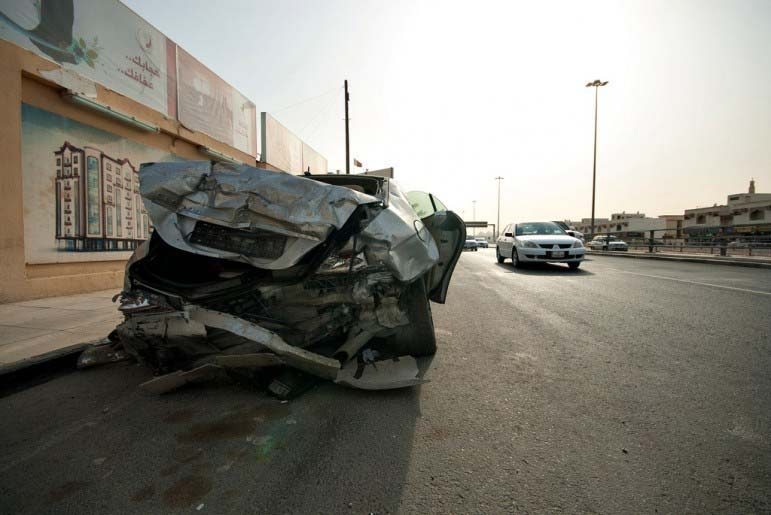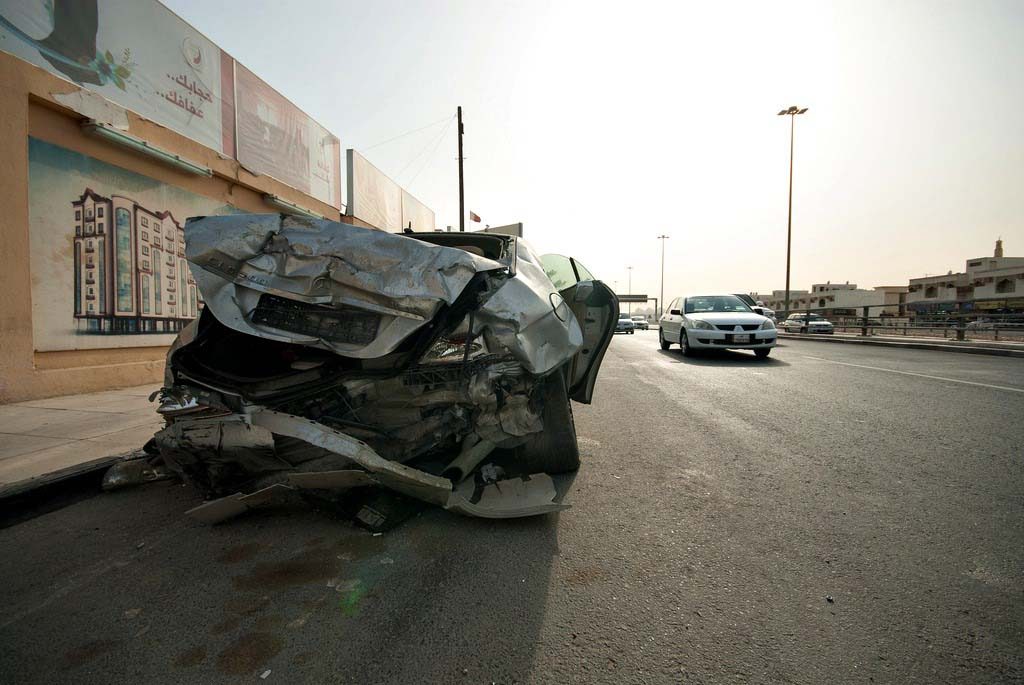
Despite rising obesity rates, Qatar residents are five times more likely to die in a vehicle crash than from a stroke – the highest ratio in the world, a new US-based study has found.
Researchers at the University of Michigan’s Transportation Research Institute arrived at these findings recently after comparing the relative number of road fatalities in several countries to various other leading causes of death across the world.
Qatar was also found to have the planet’s highest ratio of motor vehicle deaths to fatal cases of heart disease.
Cancer still kills more people than motor vehicle accidents in Qatar. But compared to cancer-related deaths, Qatar still ranks among the top 10 countries with the highest rate of road fatalities.
While the results may appear alarming, especially with traffic safety always a growing concern in Qatar, the study likely says more about the relatively low prevalence of cancer, strokes and heart disease in this country than the carnage on Qatar’s roads.
Young population
The country’s population is dominated by working-age expats who generally leave Qatar before they reach an age when such illnesses are most prevalent – in part due to the official retirement age being 60 years old. However, employees at various companies can apply for extensions on their contracts.
This is a likely factor behind Qatar having the lowest mortality rate in the world in 2008, with 141 deaths per 100,000 people.
Nevertheless, the results show that vehicle collisions are among the top killers in Qatar, and that improving traffic safety would be one of one of the most effective ways of reducing mortality rates here, according to one of the report’s authors.
In an email response to Doha News, researcher Michael Sivak said:
“It is clear that in Qatar fatalities from road crashes represent a major part of all fatalities. Consequently, focusing on road safety improvements is likely to have a major impact on the overall public health.”
By the numbers
Researchers based their findings on 2008 data from the World Health Organization that looked at the number of deaths from various causes, while accounting for different population sizes.
In Qatar, there were:
- 28 cancer deaths per 100,000 residents (third-lowest, behind Kuwait and the UAE);
- 16 deaths due to heart disease per 100,000 residents (second-lowest in the world, behind the Pacific Ocean island nation of Kiribati);
- Four deaths from strokes per 100,000 residents (lowest in the world, followed by the UAE and Bahrain); and
- 20 road deaths per 100,000 residents (60th highest in the world. By comparison, the UAE was the 32nd highest with 25 vehicle fatalities per 100,000 residents).
Qatar’s population has grown significantly since those figures were collected, bringing more vehicles – and collisions – to the country’s roads.
According to the government’s most recent statistics, there were 397 collisions in the month of January, resulting in 14 deaths.
Male deaths
While detailed demographic data was not included in the report, a separate study found that 97 percent of the 228 people who died in traffic accidents in Qatar in 2010 were men.
This is likely explained in part by the country’s gender imbalance that leads to more men on the road. Additionally, the article notes that women simply drive less than men in most Gulf countries.
A recent article in the Economist picked up on this same theme, noting that most road deaths worldwide involves boys and young men who use roads more and take greater risks. Since many were, or were expected to be, their family’s top income earner, road fatalities carry a significant economic as well as emotional toll.
In examining road safety in developing countries, the article found that low-cost safety measures – such as physical barriers separating pedestrians from vehicles, rumble strips that alert drivers when they are veering out of their lane, as well as police crackdowns on speeding, seatbelt use and drunk driving – can significantly lower collision rates.
Here in Qatar, a survey of residents conducted in late 2012 found that many motorists favored greater police presence and more stringent enforcement of traffic laws to makes the country’s roads safer.
Previously, experts have attributed a perceived lack of enforcement to not enough training, and cultural differences. For example, officers may be reluctant to pull men driving poorly if they are with their families.
The number of officers focused on traffic is slated to increase later this year when a new highway patrol force hits the country’s streets.
They received special training in traffic crash investigation techniques, vehicle inspections, Qatari traffic laws as well as identifying and booking common violations like tailgating, mobile phone use, and failing to wear a seat belt.
Thoughts?







